JACKIE ROBINSON WEST

An imprint of Rowman & Littlefield
Distributed by NATIONAL BOOK NETWORK
Copyright 2016 by George Castle
All images by George Castle unless otherwise noted.
All rights reserved. No part of this book may be reproduced in any form or by any electronic or mechanical means, including information storage and retrieval systems, without written permission from the publisher, except by a reviewer who may quote passages in a review.
British Library Cataloguing in Publication Information Available
Library of Congress Cataloging-in-Publication Data Available
ISBN 978-1-63076-126-4 (hardcover : alk. paper)
ISBN 978-1-63076-127-1 (electronic)
 The paper used in this publication meets the minimum requirements of American National Standard for Information SciencesPermanence of Paper for Printed Library Materials, ANSI/NISO Z39.48-1992.
The paper used in this publication meets the minimum requirements of American National Standard for Information SciencesPermanence of Paper for Printed Library Materials, ANSI/NISO Z39.48-1992.
ACKNOWLEDGMENTS
IF IT TAKES A VINTAGE CHICAGO VILLAGE TO BAND TOGETHER TO PURGE crime and raise a nationally prominent Jackie Robinson West program, then much of the same is needed to put together a book.
The first credits for all the words to follow go to Cheryl Patterson, former Jackie Robinson West cheerleader and present-day backer. Without Pattersons guidepost to the pastalways prologue in life and baseballalong with a big archive of photos, what youll read would be radically different.
One of Pattersons first references came to the phone of Saundra Bishop. Wife, mother, telephone worker who raised the down payment for her house, community organizer, and poll watcher, Bishop did it all. She is the conscience of the village we profile. Without Bishops treasure trove of historical documents and letters, several of which are reprinted here, there would be only distant, likely fuzzy memories of how a community acts as one to forge an all-American life.
Name the subject, and Ed Bishop likely had a bead on it. As Saundra Bishops husband and a former Chicago police detective, Ed Bishop had detailed mental notes. I would have hated to be a perp with Bishop on my trail forty-five years ago.
Other villagers present and past, such as Pamela Hill-Veal, Alvenna Ward, James Harris, Guan Hollins, Austin Hollins, Darius Hogans, John Talbert Jr., Harvey Burton, and Yolanda Woodard, were invaluable in their recollections along with photos from their personal collections.
The Chicago political system worked, too, and this author did not walk into an aldermans office with any other clout than trying to tell a good story. Thirty-Fourth Ward alderman Carrie Austin and her staff were welcoming and helpful in connecting with retired Illinois state senate president Emil Jones. The first political mentor of President Obama, Jones had compelling stories about the chief executive-to-be, the late Richard J. Daley, and the founding and development of JRW.
JRW players Brandon Green, Trey Hondras, and Pierce Jones and their families get sincere thanks for welcoming me into their homes for in-depth conversations that showed the depth of parenting that goes into a kids life.
Pat Roach, my intern from three books agoturned ace public relations manalso gets kudos for some quick volunteer booking work when JRW was stripped of its US title on February 11, 2015. Roach persuaded producers to allow me to talk about this project on Keith Olbermanns ESPN2 show and Big John Howells WLS morning drive-time radio program in Chicago.
As always, the staff of the Harold Washington Library in downtown Chicago and the Skokie (Illinois) Public Library get plaudits for their helpfulness as I scoured microfilm and pored over period-piece books on Chicagos politics of the Richard J. Daley era. The libraries have been invaluable in a seventeen-year career as an author.
Wife Nina Castle, daughter Laura Castle, and computer wizard Nick Sarantos were invaluable to this tech Luddite. Deep down I wanted to write this on a four-bookpaper with three attached carbon copiesrolled into an Underwood manual typewriter of the kind I used in 1974 as a Chicago Tribune copyboy. That not being possible, the minivillage closer to home was vital in guiding me through times when Id press the wrong key on a computer I had used daily.
And through long, solitary days and some nights of writing, beautiful, petite basset hound Abby, who has since passed away due to a sudden illness, and miniature pinscher Kona were comforting as office dogs appreciating my presence and guarding the writers den against gremlins. In the final production steps, our handsome rescued border collie mix, Patches, adopted after Abbys passing, began training as an office dog and thus brightened the days.
Last, but never least, is Lyons Press editor Rick Rinehart. He believed in the project from virtually the moment I mentioned it to him and never wavered when JRW officials ran afoul of Little League International. Rinehart and I both believed the story was so strong not even some petty Chicago-style finagling could detour its telling.
A Tarnished Team Now Goes with Chicagos Flow
SAY IT AINT SO, JOE.
That plaintive appeal supposedly uttered from the hero-worshipping boy to Shoeless Joe Jackson outside a Chicago courthouse on September 28, 1920, may simply have been a fictional concoction of the eras ethics-challenged sportswriters.
The real-life quote printed in Hugh Fullertons account of the budding Black Sox scandal was, It aint so, Joe, is it? But the actual wording or whether anything actually was said doesnt matter. The disbelief and disillusionment embedded in those few words applied to not only the greatest team gone criminally bad in baseball history but also a slew of other catastrophes in Chicago baseball annals. Also apply its precepts to politics, the Midwest urban capitals number one spectator pastime. Often politics and sports intersected in Chicagos often tortured timeline.
And now Say it aint so, Joe, substituting first names such as Stephen, Darold, and Bill is connected to Jackie Robinson West, the telegenic Little League champion that became one of the biggest morale boosters for the collective Chicago psyche. The team of twelve-year-olds was the citysand really, the entire countryssports triumph of the summer of 2014. That is, until a telltale catch later took some of the luster off a captivating achievement. Jackie Robinson West now had a reserved seat in the century-long tale of tragedy in Chicago baseball historyalways with a connection to the citys one-of-a-kind style of politicsthat traced back to the Black Sox, the nickname for the gambling-afflicted 1919 White Sox.
The bakers dozen of talented playerspopularly known as JRWauthored an uplifting narrative that took the battered populaces mind off a steady stream of shocking news on how Chicagos meanest streets consumed its own young. The athletic achievement that appealed to millions of non-sports fans also helped sooth the hurt of racially charged police-citizen tragedies in Ferguson, Missouri, and on Staten Island.
JRW was the first all-black team to win the Little League World Series, proving African Americans were still interested inand mas-tereda sport they supposedly abandoned over the past generation. And the engaging, emotionally mature kids blazed a path away from age-old, negative stereotypes about African Americans and family structure.
If one looked hard enough beyond some eastern writers description of the teams story as rags to riches, JRWs real base was the relatively stable black far South Side middle-class neighborhood of Washington Heights. Residents of the neighborhood, populating in the late 1960s a kind of village, had taken firm action even before the league was founded in 1971 to chase crime out of the area. The JRW players possessed the good fortune of committed, involved fathers, proving the positive role of two-parent households in properly raising children and advancing the cause of baseball.





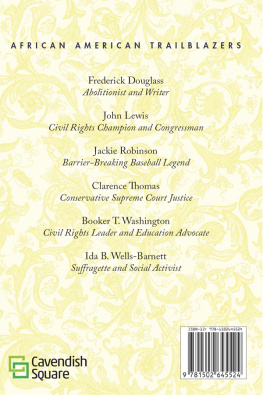
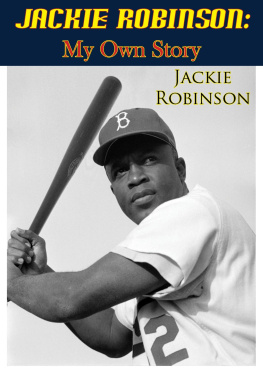
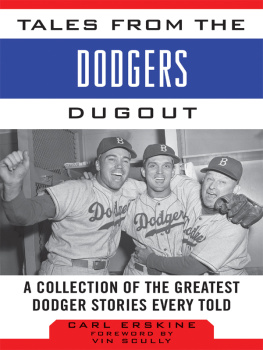
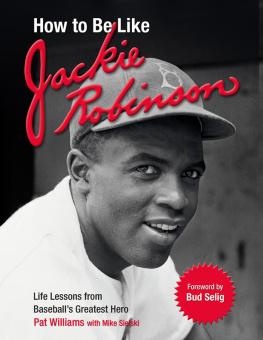
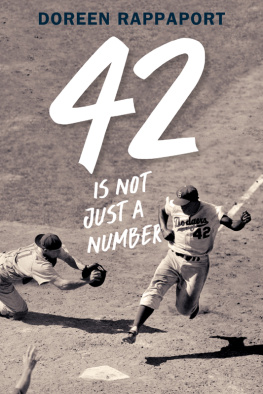
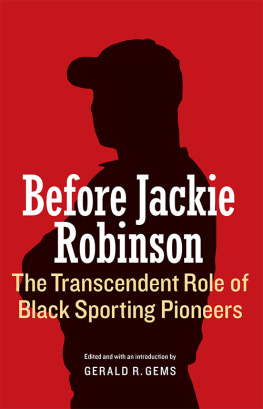

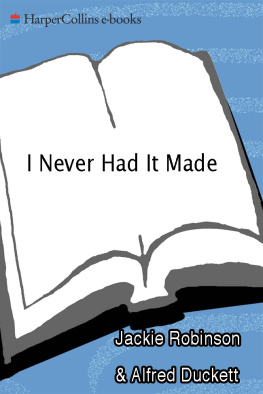
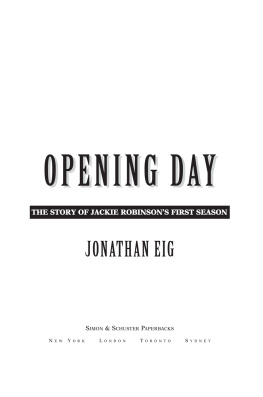


 The paper used in this publication meets the minimum requirements of American National Standard for Information SciencesPermanence of Paper for Printed Library Materials, ANSI/NISO Z39.48-1992.
The paper used in this publication meets the minimum requirements of American National Standard for Information SciencesPermanence of Paper for Printed Library Materials, ANSI/NISO Z39.48-1992.